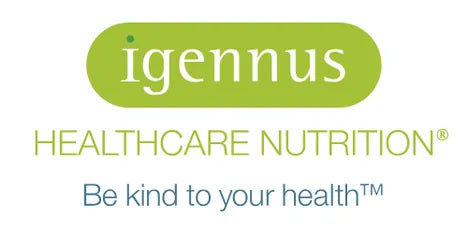Until now, your precious bump may have had all the attention while you’ve meticulously googled every stage to put your mind at ease. After birth, your time and effort (love) are yet again directed towards your baby and you’ll likely ignore your own new symptoms through a sleepy daze. It shouldn’t and doesn’t have to be this way.
Give yourself some time and don’t neglect your own health – you’ve just had a baby; after all a happy, healthy and rested mum is good for your little one too! You’ll be glad to know there are reasons behind the strange, perhaps unwelcome new symptoms creeping into your life, and these can often be helped with diet and lifestyle.
From hair loss to anxiety, why is no one talking about it? Here are a few changes to expect, and tips on how to overcome them.
Mood fluctuations and feeling on edge
There’s enough to worry about with the arrival of your new baby, so it’s no surprise if you have feelings of anxiety or doubt your ability to fit into the new mum role.
Too many women feel they are not coping well and become overwhelmed in the early months post birth. It’s absolutely wonderful to meet your new baby, but also a tough juggling act to learn how to look after a new baby while also remembering to look after yourself in this new adventure. While you’re actually doing an amazing job as a mum, it’s reassuring to understand that your hormones may be playing tricks with your mind, causing you to question your ability to cope.
Oestrogen dominance
The first few months post labour bring on some of the biggest hormonal imbalances, putting your body and mind out of whack. As if there wasn’t enough to deal with at this time!
Here’s what’s going on with your hormones: during pregnancy, the placenta produces huge amounts of progesterone. As the placenta leaves the body after the birth, there is a sudden drop in progesterone. As oestrogen levels are still high in the body, there is a significant change in the ratio between progesterone and oestrogen. When it comes to hormones, it’s all about the ratios, or balance. In this case, most new mums have very high levels of oestrogen compared to progesterone, which is known as ‘oestrogen dominance’.
As progesterone is considered to be an anti-anxiety hormone, (1) when a sudden drop occurs, you may feel that your mood is low. This is often referred to as ‘the baby blues’ or ‘postnatal depression’. Oestrogen dominance has been repeatedly linked to anxiety and depression, (2) with prevalence of depression twice as likely to occur in women, (3) so it’s no wonder it’s common at this stage. If you feel that you are struggling and can’t cope, it’s important to speak to someone, such as your GP, about this, but if you are feeling just a bit ‘down’ occasionally and have support around you, it’s helpful to know these feelings often pass in a couple of months.
Low progesterone may contribute to you feeling on edge, but it’s also completely normal to feel overly anxious and protective at this stage, as your natural instincts to worry about your baby are kicking in.
Oestrogen-mimicking foods
On a positive note, this state of mind is only short-lived, and your hormones will level out eventually. To hasten the process, you can make dietary changes such as avoiding foods containing phytoestrogens, compounds which mimic the effects of oestrogen in the body.
Phytoestrogens are naturally occurring in plants such as soy beans, (4) so try to avoid soy products including tofu, tempeh and soy yoghurt. Flaxseeds / linseeds are also an extremely high source of phytoestrogens, (4) so, while these seeds are usually considered very healthy, you might want to skip them for the next few months.
Omega-3 depletion
In the third trimester, your baby’s developing brain will have soaked up a significant amount of omega-3 DHA, often from your body and brain reserves if your diet didn’t meet the high levels needed. Omega-3 EPA will also have been used up in many processes. Your levels of omega-3 EPA and DHA are therefore likely to be low at this point, which could have a significant negative effect on your mood. Studies have consistently observed lower omega-3 EPA and DHA levels in those with depressive disorders. (5) Ensure that you include oily fish in your diet at least twice a week to keep your levels healthy, and consider a supplement too, such as Pharmepa Maintain.
Luscious locks and the pregnancy glow
“You look so healthy and glowing”. It’s not unusual to be showered with compliments when pregnant, but is there any truth to this or are people just being overly nice? Your skin, hair and nails are actually often in tip top condition when pregnant, and you have your hormones to thank for that. It’s not all roses, though, as things may start to change.
Thinning hair
The state of your hair may not be at the top of your agenda when you have your new-born, but clumps of hair falling out in the shower in the months after giving birth can be quite a shock if you aren’t prepared for that possibility. During your pregnancy, you may have noticed your hair getting slightly thicker as the hormonal changes prolong the growth phase of your hair cycle. This is great when you’re pregnant, but all of these hairs which have held off shedding may now be ready to fall out in a short period of time.
Brittle nails
Nails also grow thicker (6) and stronger during pregnancy, but may become brittle after giving birth. This may partly be due to hormonal changes and thyroid function, but also to lower levels of nutrients in your body which have been passed on to your baby for optimal development. It’s all worth it to ensure your baby gets what it needs, but now it’s time to top up your nutrient levels to nourish your own body back to health.
Skin complaints
Whether or not you were lucky enough to have that pregnancy glow, things may also start to change for your skin. Patchy dry skin, eczema flare-ups and even acne like to show up after giving birth. Feel like you are falling apart? You are not alone and – don’t forget – all of this is temporary and can often be helped with diet too! Even simple changes such as drinking more water can support skin issues.
Topping up on lost vitamins and minerals
Iron is one the key minerals for skin, hair and nails, however it’s often depleted during pregnancy and especially after childbirth. A significant number of women with hair loss (22.7%) have low levels of iron compared to healthy individuals. (7) If you lost a lot of blood during delivery, or if you do not eat much meat, you can ask your doctor to test your iron levels. If they are low, increase your intake of iron-rich foods including red meat, beans, chickpeas, nuts and green vegetables. To improve your absorption of plant-based iron, have alongside vitamin C-rich foods such as red peppers, kiwi fruit and berries. Iron deficiency symptoms may include feeling tired and out of breath easily, as well as affecting your circulation, causing cold hands and feet. You may also wish to take an iron supplement, but note that iron in excess is toxic, so test beforehand.
Other key vitamins and minerals for skin, hair and nails include vitamins A, C & E and B vitamins. Vitamin C is particularly useful for speeding up the healing process after giving birth too. Include plenty of wholegrains, seeds and brightly coloured fruits and vegetables to get these key nutrients.
Sleep, what sleep?… and fatigue
There’s a big difference between feeling tired due to lack of sleep and feeling so fatigued that you can’t function properly. The huge lifestyle change of attending to your new arrival throughout the night is often assumed to be the cause of extreme fatigue, but there’s more to the story.
Your hormones may yet again be the driving force making you feel even more fatigued than expected. Hormones play a big role by affecting your adrenal glands, which are responsible for helping your body deal with stress – this can have a significant knock-on effect for energy levels.
We know that oestrogen is dominant after giving birth, and oestrogen has been shown to significantly elevate cortisol, (8) a stress hormone produced in the adrenal glands. The combination of hormonal events and increased day-to-day demands may lead to adrenal fatigue, resulting in feelings of extreme fatigue even after resting. The double whammy of lack of sleep combined with adrenal fatigue can leave you feeling absolutely exhausted.
The best thing you can do to support your adrenal glands is to rest as much as possible. Don’t push yourself too hard and certainly don’t hit the gym until you really feel ready. For now, put your feet up when you can, and allow your body to rest and recover.
If you feel out of breath as well as being exhausted, you may want to consider your iron levels too.
While at this time you may not be able to control the amount of sleep you are getting, the quality of your sleep may be improved with adequate magnesium levels. Magnesium is required in enzyme processes used to produce GABA (a neurotransmitter responsible for calming your mind and inducing sleep) in the brain. Try having an Epsom salt bath and a magnesium supplement.
Sluggish digestion
The dreaded digestive complaints during pregnancy, from constipation to acid reflux, may still persist after giving birth. High progesterone during pregnancy may slow down the speed at which food travels through your digestive system, but after giving birth, hormonal shifts can often keep this slow too due to the impact on your thyroid gland. A sluggish or underactive thyroid is quite common both during pregnancy and postpartum. (9)
As the thyroid gland determines our metabolism, an underactive thyroid can result in many functions slowing down, including digestion, leading to constipation. Other symptoms may include feeling cold and tired, as well as difficulty in losing weight. Skin may become dry, hair might fall out more easily and nails can become brittle.
To keep things moving, ensure that you include plenty of fibre in your diet. Fruit, beans and oats are great soluble forms of soft, water-absorbing fibre which are gentle on your digestion. Drinking water with these foods can also help to keep constipation at bay.
Fibre also helps to clear excess hormones out of your body, helping to speed up the process of rebalancing your hormones to keep your thyroid gland functioning well.
Nutrition summary: Key changes to put into practice
- Start the day by drinking a large glass of water while making yourself a cup of tea to maximise your fluid intake
- Eat oily fish at least twice a week or take fish oil supplements rich in omega-3 EPA and DHA
- Include plenty of iron-rich foods including red meat, beans, chickpeas, nuts and green vegetables. Get your iron levels checked too and take a supplement if they are low
- Eat foods rich in vitamins A, C & E and B vitamins – such as wholegrains, seeds and brightly coloured fruits and vegetables
- Avoid foods containing phytoestrogens: flaxseeds / linseeds, soy beans, tofu, tempeh and soy yoghurt
- Include plenty of soluble forms of fibre in your diet such as fruit, beans and oats
- Put your feet up when you can, have a relaxing bath with Epsom salts, and allow your body to rest and recover.
References
- Bristot G et al. Progesterone and its metabolites as therapeutic targets in psychiatric disorders. Expert Opin Ther Targets. 2014 Jun, 18(6): 679-90. https://www.ncbi.nlm.nih.gov/pubmed/24654651
- B. Lee Peterlin et al. The Associations Between Migraine, Unipolar Psychiatric Comorbidities, and Stress-related Disorders and the Role of Estrogen. Curr Pain Headache Rep. 2009 Oct, 13(5): 404–412. https://www.ncbi.nlm.nih.gov/pmc/articles/PMC3972495/
- Stephanie A. Riolo et al. Prevalence of Depression by Race/Ethnicity: Findings From the National Health and Nutrition Examination Survey III. Am J Public Health. 2005 June; 95(6): 998–1000. https://www.ncbi.nlm.nih.gov/pmc/articles/PMC1449298/
- Lilian U. Thompson et al. Nutrition and Cancer. Phytoestrogen Content of Foods Consumed in Canada, Including Isoflavones, Lignans, and Coumestan. 2009 Nov. http://www.e-lactancia.org/media/papers/LinoSojaFitoestrogenos-NutCan2006.pdf
- McNamara RK. Role of Omega-3 Fatty Acids in the Etiology, Treatment, and Prevention of Depression: Current Status and Future Directions. J Nutr Intermed Metab. 2016 Sep; 5: 96-106. https://www.ncbi.nlm.nih.gov/pubmed/27766299
- Altan Ferhatoğlu Z et al. Morphology, growth rate, and thickness of the nail plate during the pregnancy. Int J Dermatol. 2018 Oct; 57(10): 1253-1258. https://www.ncbi.nlm.nih.gov/pubmed/30035300
- Park SY et al. Iron plays a certain role in patterned hair loss. J Korean Med Sci. 2013 Jun; 28(6): 934-8. https://www.ncbi.nlm.nih.gov/pubmed/23772161
- Kate M. Edwards & Paul J. Mills. Effects of estrogen versus estrogen and progesterone on cortisol and interleukin-6. Maturitas. 2008 Dec 20; 61(4): 330–333. https://www.ncbi.nlm.nih.gov/pmc/articles/PMC2663529/
- Shields BM et al. Five-year follow-up for women with subclinical hypothyroidism in pregnancy. J Clin Endocrinol Metab. 2013 Dec; 98(12): E1941-5. https://www.ncbi.nlm.nih.gov/pubmed/24217906








